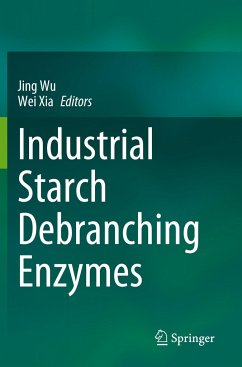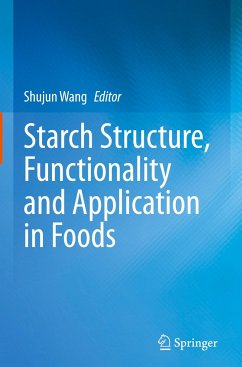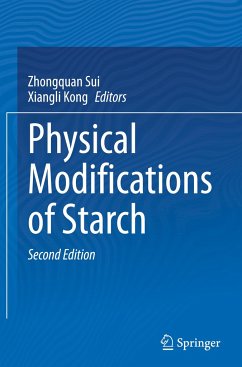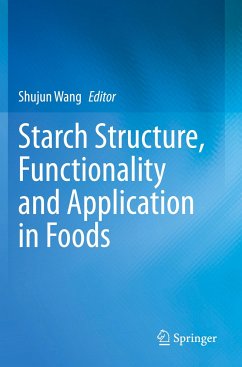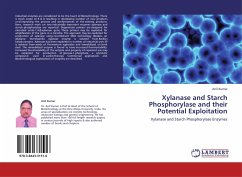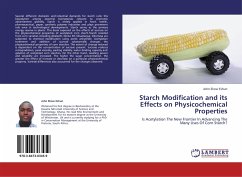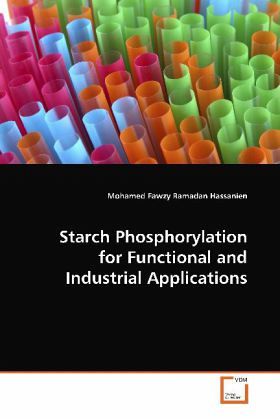
Starch Phosphorylation for Functional and Industrial Applications
Versandkostenfrei!
Versandfertig in 6-10 Tagen
32,99 €
inkl. MwSt.

PAYBACK Punkte
16 °P sammeln!
Starch is an important determinant for the texture ofmany foodstuffs, and it is widely used in industrialapplications as a thickener, stabilizer, gellingagent, and adhesive. The effects of starch arerelated to its gelatinization and retrogradation. Thedemand for increased performance of applicationspoints out the limitations of starch. Modifiedstarches were developed to overcome these shortcomings. The modification processes aim atchanging the properties and the integrity of thestarch granule, in order to modify its behavior interms of gelatinization, and retrogradation. In thecurrent research...
Starch is an important determinant for the texture of
many foodstuffs, and it is widely used in industrial
applications as a thickener, stabilizer, gelling
agent, and adhesive. The effects of starch are
related to its gelatinization and retrogradation. The
demand for increased performance of applications
points out the limitations of starch. Modified
starches were developed to overcome these
shortcomings. The modification processes aim at
changing the properties and the integrity of the
starch granule, in order to modify its behavior in
terms of gelatinization, and retrogradation. In the
current research various types of starches (corn,
rice and potato), corn amylase and corn amylopectin
were phosphorylated, and their physicochemical
properties were investigated. Modified starch with
novel properties is anticipated to be used in many
functional foods and pharmaceuticals. Biodegradable
films were formulated from native and modified
starch, and their solubility s and biodegradable
properties were investigated. Successful application
of modified starch-based films in plastic
manufacturing provides a number of benefits including
clean environment, and cost savings.
many foodstuffs, and it is widely used in industrial
applications as a thickener, stabilizer, gelling
agent, and adhesive. The effects of starch are
related to its gelatinization and retrogradation. The
demand for increased performance of applications
points out the limitations of starch. Modified
starches were developed to overcome these
shortcomings. The modification processes aim at
changing the properties and the integrity of the
starch granule, in order to modify its behavior in
terms of gelatinization, and retrogradation. In the
current research various types of starches (corn,
rice and potato), corn amylase and corn amylopectin
were phosphorylated, and their physicochemical
properties were investigated. Modified starch with
novel properties is anticipated to be used in many
functional foods and pharmaceuticals. Biodegradable
films were formulated from native and modified
starch, and their solubility s and biodegradable
properties were investigated. Successful application
of modified starch-based films in plastic
manufacturing provides a number of benefits including
clean environment, and cost savings.



